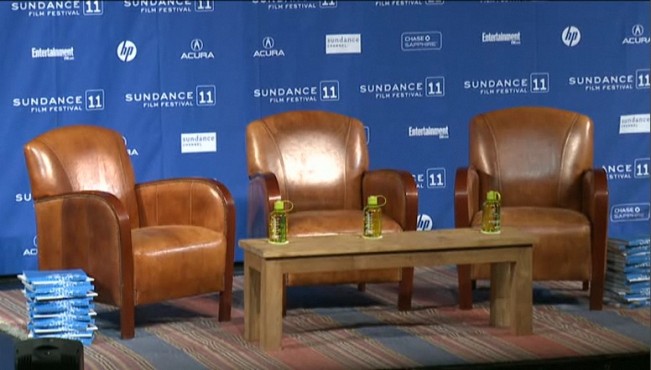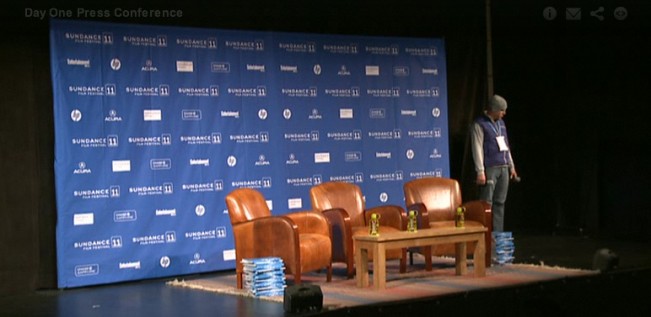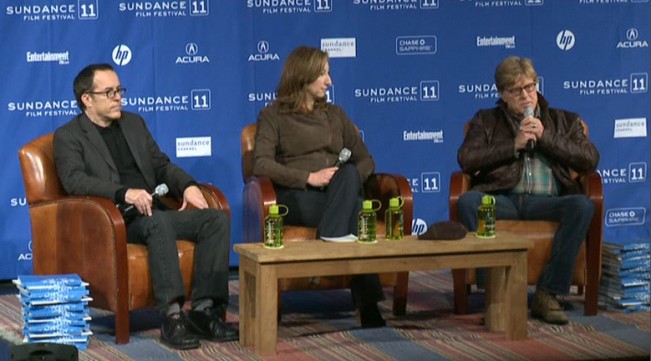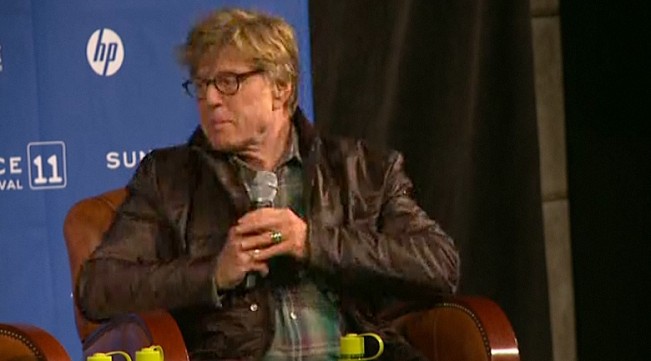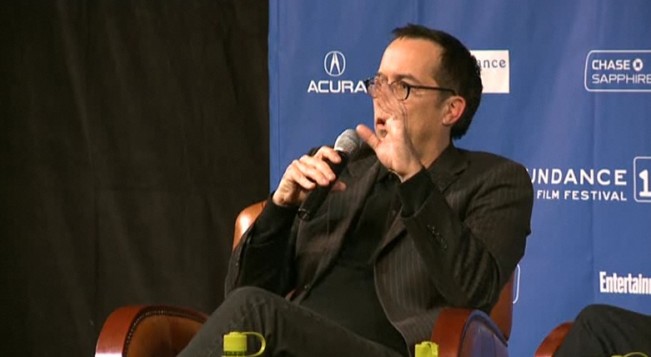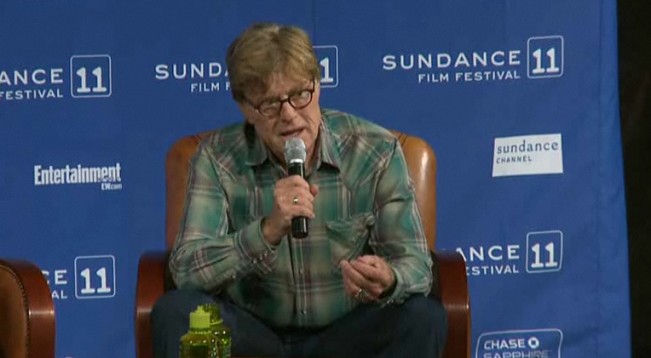

By Ray Pride Pride@moviecitynews.com
Live@Sundance Opening Presser… from a café in Chicago
The first Sundance I’ve attended where I couldn’t make it to opening day, and I’m missing the tradition of the opening presser, where Robert Redford offers his opening invocation of the ideals of Sundance. (All’s missing is thin air and the murmuring of cynical scribes seated nearby.) The work of the Sundance Institute gets described in general terms before the specific results light up the screens for ten days to come. But for 2011, the opening remarks by Robert Redford and new Executive Director of the Institute, Keri Putnam [profile], as well as John Cooper. “It’s great to be in a second year, and not a first year, let me tell you,” Cooper says. “I’m almost relaxed!” “We are live-streaming this, so hello out there!”
Cooper repeats his prediction that it may be one of the most packed festivals in years, but warns that’s anecdotal. “We’re already sold out, but the word on the street, I think, it’s going to be a very big year and maybe very crowded on the streets. I fear that this kind of constant, ongoing situtation of ambush marketers may be back—I like to call them riff-raff. At an event of this size, that is to be expected. I wish they could find a way to contribute to independent film in generral, but I have to keep looking at the sponsors who support this festival and the year-round stuff that we do.” The magic happens in the theaters, he added, “because that’s what we do.” Cooper also adds that for 2011, the festival received over 10,000 submissions.
“Mr Redford, you’re in your 70s, any plans of retiring?” a woman asks and Cooper bolts from the stage. “Who are you?” he laughs. Redford says, “I think you’ve just given me a great idea! I have not thought about retiring. I’m going to die,” he says, laughing, “but I haven’t thought about retiring.”









